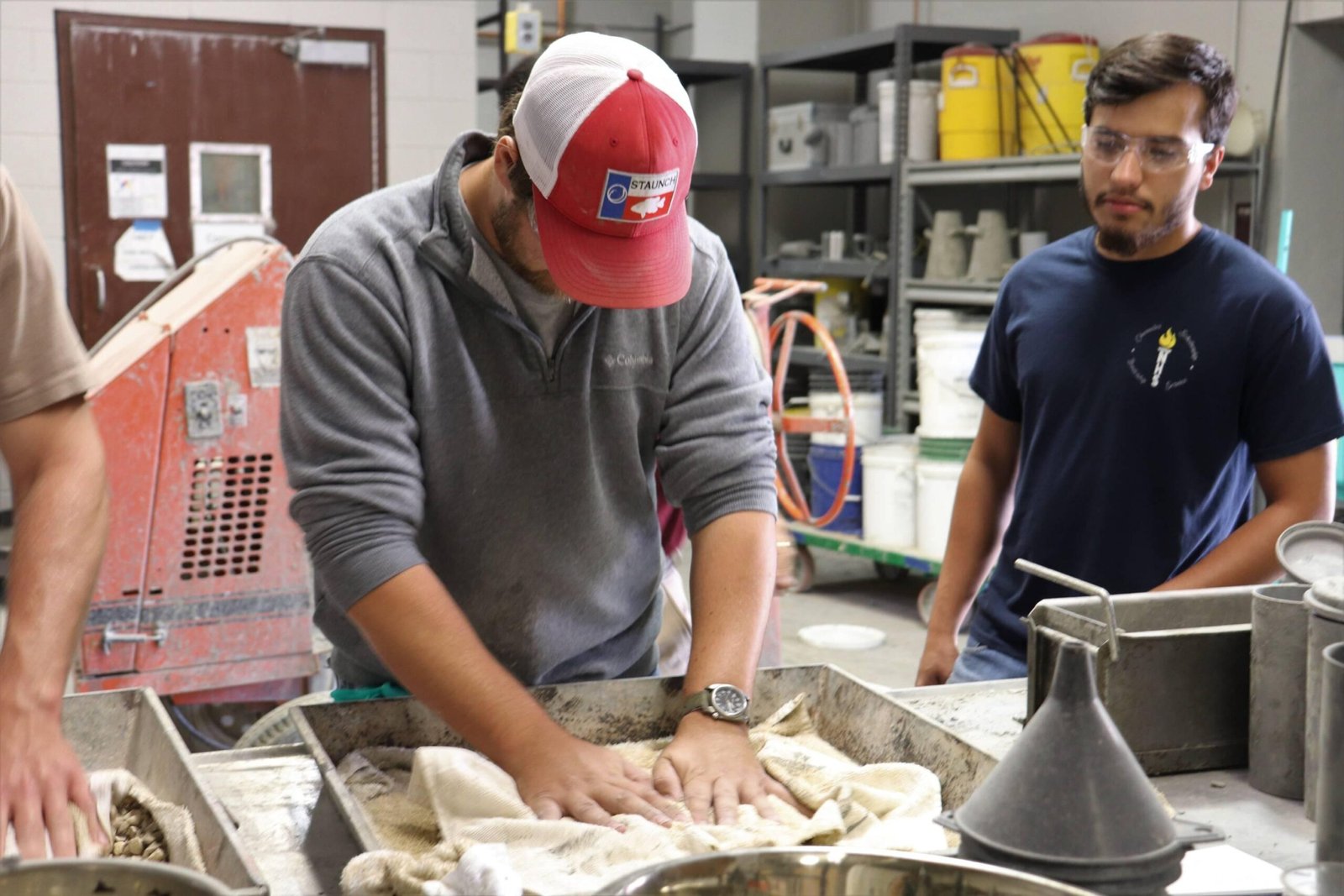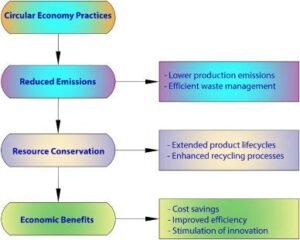Concrete Industry Management (CIM) is a unique and specialized degree program that prepares students for prosperous careers in the concrete and construction industries. This innovative educational approach combines hands-on technical knowledge with essential business and management skills, creating well-rounded professionals who are ready to take on leadership roles in concrete contracting and related fields.
The CIM program was first developed in 1996 at Middle Tennessee State University in response to the concrete industry’s growing need for skilled professionals who could bridge the gap between technical expertise and business acumen. As then, the program has expanded to several other universities across the United States, including California State University, Chico, New Jersey Institute of Technology, Texas State University, and South Dakota State University.
At its core, the CIM program aims to produce broadly educated, articulate graduates who are grounded in basic construction management concepts, knowledgeable about concrete materials, technology, and techniques, and capable of managing people and systems to promote products and services in the international concrete industry. This multidisciplinary approach sets CIM apart from customary engineering or business programs,as it provides students with a unique blend of technical and managerial skills specifically tailored to the concrete industry.
The curriculum of a typical CIM program covers a wide range of subjects,including concrete materials science,concrete construction technology,project management,quality control,troubleshooting,estimating,scheduling,and personnel management. Students also gain a strong foundation in general business principles, such as finance, marketing, and business law. This thorough education ensures that graduates are well-prepared to tackle the diverse challenges they may encounter in their future careers.
One of the most critically important advantages of the CIM program is its strong connection to the concrete industry. Throughout their studies, students have numerous opportunities to engage with industry professionals through internships, field trips, guest lectures, and networking events. This real-world exposure not only enhances their learning experience but also helps them build valuable connections that can lead to job opportunities upon graduation.
The concrete industry’s support for the CIM program extends beyond just providing learning opportunities. Many companies and industry executives actively contribute to the program by funding scholarships,donating equipment,and serving on advisory boards. This level of industry involvement ensures that the curriculum remains current and relevant to the ever-evolving needs of the concrete sector.
For students considering a career in concrete contracting, the CIM program offers several compelling benefits.First and foremost is the excellent job placement rate. Many CIM programs boast a 100% job placement rate for their graduates, with starting salaries that are competitive with other high-tech industries. This high demand for CIM graduates is a testament to the program’s effectiveness in producing skilled professionals who are ready to hit the ground running.
The career opportunities for CIM graduates are diverse and rewarding. Graduates can find themselves working as project managers, estimators, quality control specialists, sales and marketing professionals, or operations managers in various sectors of the concrete industry.Some may choose to work for ready-mix concrete producers, while others might find their niche in precast concrete manufacturing, concrete contracting, or cement production. The breadth of knowledge gained through the CIM program allows graduates to adapt to different roles and sectors within the industry.
One of the key areas where CIM graduates excel is in concrete contracting. The program’s focus on both technical and managerial aspects of concrete work prepares students to take on leadership roles in construction projects. They understand not only the properties and behavior of concrete but also how to manage teams, estimate costs, schedule work, and ensure quality control. This combination of skills is invaluable in the fast-paced and complex world of construction management.
Moreover, the CIM program emphasizes the importance of innovation and sustainability in concrete construction. Students learn about cutting-edge technologies and practices that are shaping the future of the industry, such as advanced mixing technologies, green concrete solutions, and digital tools for project management. This forward-thinking approach ensures that CIM graduates are well-positioned to lead the industry towards more efficient and environmentally friendly practices.
The hands-on nature of the CIM program is another significant advantage. Students participate in numerous practical exercises, laboratory work, and real-world projects throughout their studies. This experiential learning approach helps them develop problem-solving skills and gain confidence in applying their knowledge to actual construction scenarios. By the time they graduate, CIM students have already tackled many of the challenges they will face in their professional careers.
For those looking to further advance their careers, some universities offer a Master of Business Administration (MBA) program specializing in Concrete Industry Management. This executive-style program is designed for professionals already working in the industry who want to enhance their management and leadership skills. The MBA program covers advanced topics in business strategy, finance, and operations management, all contextualized within the concrete industry.
The concrete industry is a crucial part of the global construction sector, with concrete being the most widely used building material in the world. As urban advancement continues to grow and infrastructure needs expand, the demand for skilled professionals in concrete contracting and management is expected to remain strong. The CIM program plays a vital role in meeting this demand by preparing the next generation of industry leaders.
the Concrete Industry Management program offers a unique and valuable educational pathway for students interested in pursuing a career in concrete contracting and related fields.By combining technical knowledge with business acumen, hands-on experience with industry connections, and a focus on innovation and sustainability, CIM prepares graduates to become the future leaders of the concrete industry. As the construction sector continues to evolve, these well-rounded professionals will play a crucial role in shaping the built environment for generations to come.











